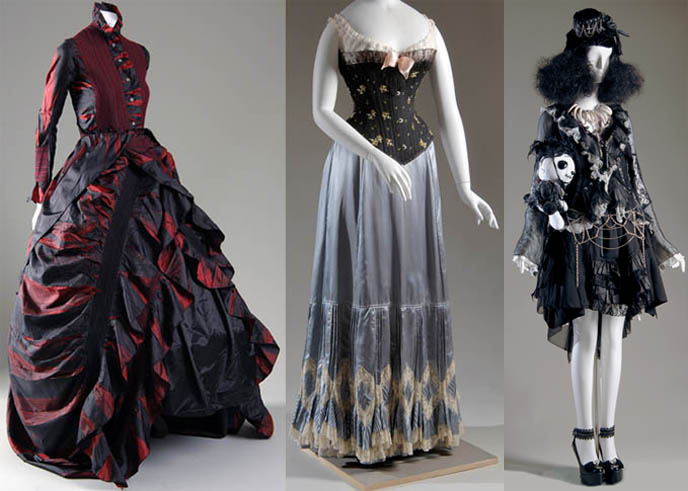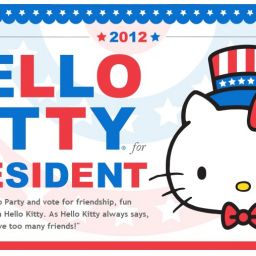As a followup to our recent posts about anime and Korean dramas, we have more about the cross-cultural influence of pop culture from Asia, or what Lisa Katayama calls on BoingBoing, the weird /othering of Japanese pop culture moves on to fashion.
The New York Times recently had an article on the difficulty of Japanese fashion designers to find recognition outside of Japan. Surprisingly, there was only passing reference to the appropriation of Japanese fashion — completely sans mention of the problematic aspects of Gwen Stefani and her fashion line, Harujuku Girls.
There was also no mention of the subcultural aspects of Japanese fashion that have found success outside of Japan, including anime fans, especially through cosplay — and the San Francisco branches of the Gothic Lolita store, Baby, the Stars Shine Bright and the Japanese store, Black Peace Now.
And considering that NYC’s FIT recently had the Gothic: Dark Glamour exhibition, including panels and fashion from Japanese subculture, this omission from the NYTimes article is striking.
However, the article did include mentions of the Lolita fashion trend thusly:
(Although Lolita style is a reference to the Vladimir Nabokov novel “Lolita,” its look is more covered-up Victorian schoolgirl than skin-baring teenage vixen.)
— and yes, the original was in parentheses.
I’m not sure why in an article about the Japanese fashion trends this description of the Lolita fashion style was viewed as a sufficient description — girly steampunk would have been more appropriate, but that is likely still too subcultural.
Interestingly, Google search filters out the word lolita from Google SafeSearch — even though this is the title of a well-regarded novel!!!
On the other hand, Jezebel recently highlighted the licensed manhwa version of Gossip Girl. Interestingly, even the publisher decided to describe this graphic novel / comic by a Korean artist as manga (the term for this art literature from Japan) rather than manhwa (for Korean litart). Considering the growing influence of hallyu as the appropriate term for Korean pop culture, and the growing understanding about the difference between graphic novels/comics from Japan and Korea, I’m really surprised by the lack of distinction. Blair would be highly disappointed!







[…] write a lot about hallyu (exported Korean pop culture) on this blog, and K-pop has really started to hit the […]